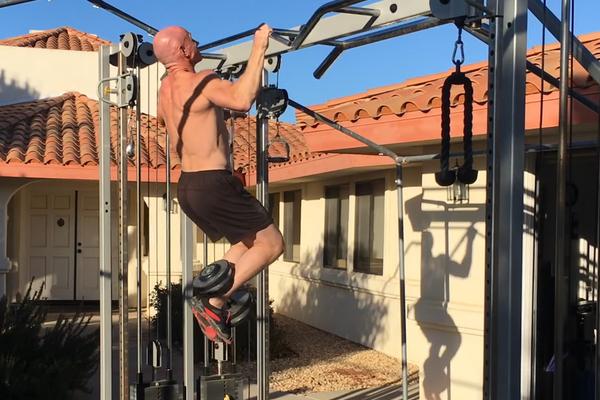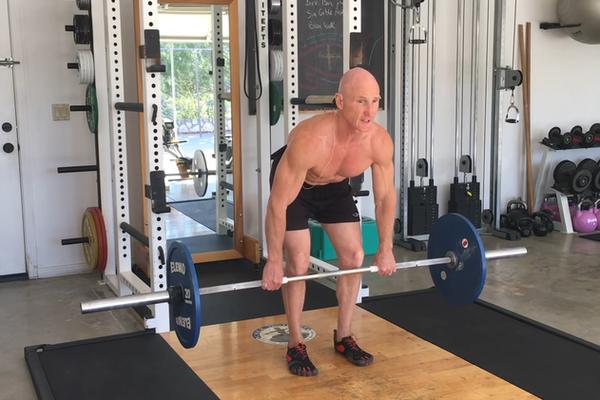Training For Single-Arm Chin-ups
by Paul Chek

A LOT of people have asked me over the years how to perform single-arm chin-ups safely and with good form, particularly on my YouTube Channel.
In my video, I’ll share some tips to help you begin the process of training to perform single-arm chin-ups.
It’s a good idea to begin with the basics in order to build yourself up to that level of performance.
First, you should build up to perform 35-40 chin-ups in a row with both arms and master doing that with your body weight alone.
Once you’ve hit that benchmark, then it’s important to learn how to use the different grip positions.
Typically, chin-ups are performed with a prone grip, but I’ve customized my workout area to include different sizes of grips. A good way to get used to a different size of grips: Wrap a towel around the bar, then tape it down to give it some integrity.
It really doesn’t take much to expand your grip which makes the work you do a lot more difficult. That’s really important because building grip strength can be a real challenge.
A good way to build grip strength: Learn how to master the farmer’s carry, an exercise in which you carry dumbbells or kettlebells in each hand while maintaining a good upright position. Start with carrying kettlebells or dumbbells for 30 seconds and slowly build up to 60-70 seconds.
As you build up to where you want to go, I must remind you once again about Charlie Francis’ 1-3 percent rule: If you can’t improve today’s performance by 1-3 percent over your previous workout, do some work on another part of your body.
Otherwise, you’ll never get strong enough, and always feel partially spent.
Later on in my video, I’ll demonstrate how you can move closer to your ultimate goal of single-arm chin-ups by learning how to performing rock climber, circle and weighted chin-ups.
It’s really neat to be strong enough to do a single-arm chin-up. Not many people can do them, unless they’re little, skinny rock climbers who have fantastic power-to-weight ratios. Most athletes, even big strong guys, can’t perform them.
If you want to learn more designing and selecting exercises for yourself or others, you’ll may want to consider Integrated Movement Science Level 1.
Love and chi,
Paul


